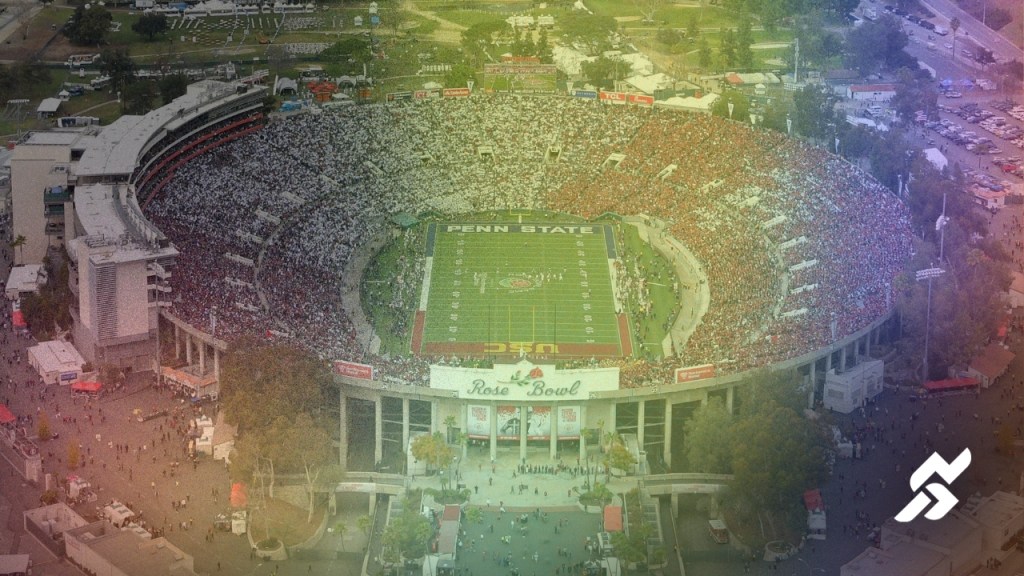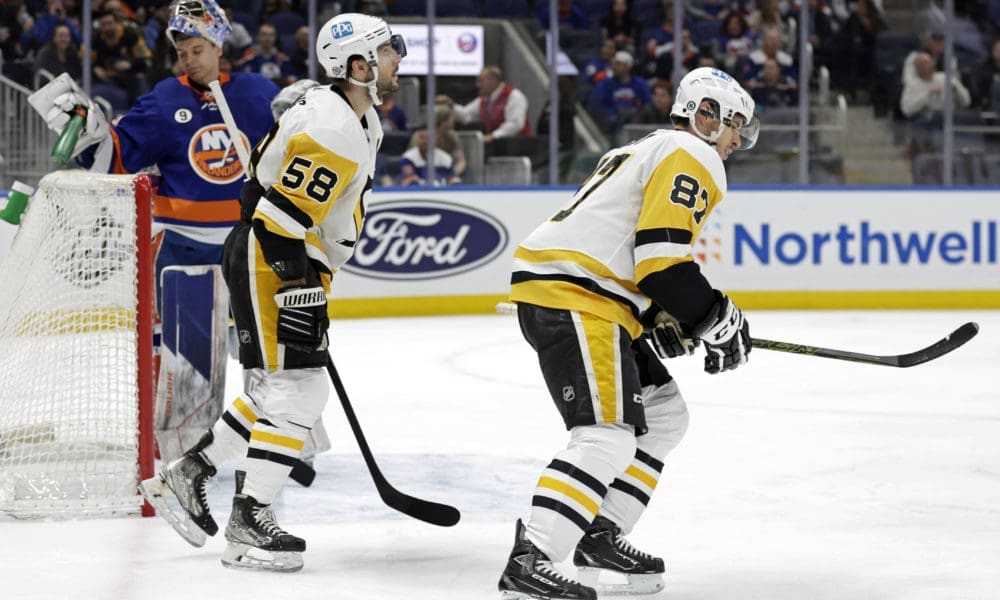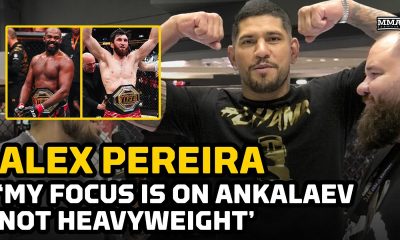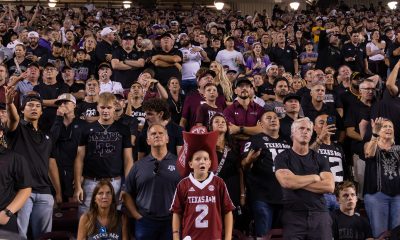Syracuse, N.Y — Section III has seen its fair share of dominant athletes over the past half-decade.
Over the next couple of months, syracuse.com will list the stats leaders in several categories for several sports over the past five seasons.
Farhat and Raman celebrate during the NCAA Championship. Story Links Middlebury women’s tennis seniors Nina Farhat and Sahana Raman have been lauded with College Sports Communicators (CSC) Academic All-America accolades. The pair capped their careers together last week, finishing as the NCAA Runner-Up in the doubles bracket with a record of 30-4 this season. HONOREE HIGHLIGHTS […]



Farhat and Raman celebrate during the NCAA Championship.
Middlebury women’s tennis seniors Nina Farhat and Sahana Raman have been lauded with College Sports Communicators (CSC) Academic All-America accolades. The pair capped their careers together last week, finishing as the NCAA Runner-Up in the doubles bracket with a record of 30-4 this season.
HONOREE HIGHLIGHTS
With Farhat and Raman’s accomplishments, Middlebury now has 61 Academic All-America selections. The full list of women’s tennis honorees can be found here.
Scout Oudemool of Skaneateles and Drew Kopek of Clinton are the top two Section III girls ice hockey goal scorers over the past five seasons.Mark DiOrio Syracuse, N.Y — Section III has seen its fair share of dominant athletes over the past half-decade. Over the next couple of months, syracuse.com will list the stats leaders […]


Syracuse, N.Y — Section III has seen its fair share of dominant athletes over the past half-decade.
Over the next couple of months, syracuse.com will list the stats leaders in several categories for several sports over the past five seasons.
If you purchase a product or register for an account through a link on our site, we may receive compensation. By using this site, you consent to our User Agreement and agree that your clicks, interactions, and personal information may be collected, recorded, and/or stored by us and social media and other third-party partners in accordance with our Privacy Policy.
The College Sports Commission (CSC) on Thursday issued additional guidance for the term “valid business purpose” and indicated NIL collectives whose sole focus is to pay athletes to attend or remain at a particular school will see their NIL deals rejected. The clarification is arguably in line with the House settlement, the longstanding NCAA prohibition against pay-for-play […]

The College Sports Commission (CSC) on Thursday issued additional guidance for the term “valid business purpose” and indicated NIL collectives whose sole focus is to pay athletes to attend or remain at a particular school will see their NIL deals rejected.
The clarification is arguably in line with the House settlement, the longstanding NCAA prohibition against pay-for-play and, more conceptually, the relationship between the right of publicity and NIL. But it could spark legal challenges.
As part of the House settlement, college athletes must report NIL deals that are worth at least $600. Those deals are subject to a clearinghouse review by NIL Go, which is spearheaded by Deloitte. The basic analysis is whether a proposed deal is consistent with the commercial use of the athlete’s NIL or better understood as an impermissible pay-for-play arrangement.
In this examination, NIL Go considers whether the payor of the NIL deal intends to use the athlete’s NIL for a valid business purpose, which CSC defines as a goal to “sell a good or service to the public for profit.” This examination also considers the range of compensation, and specifically whether the amount of money is commensurate with money paid for similar athletes in the same situation.
The term “valid business purpose” stems from NCAA Bylaw 22.1.3, which governs involvement of associated entities or individuals in NIL deals. The bylaw requires a valid business purpose “related to the promotion or endorsement of goods or services provided to the general public for profit, with compensation at rates and terms commensurate with compensation paid to similarly situated individuals with comparable [NIL] value who are not prospective student-athletes or student-athletes of the institution.”
The idea of a valid business purpose becomes less abstract when imagining an endorsement deal in pro sports.
Think of a pro athlete paid to appear in a TV commercial for a car, sneaker, weight loss program or some other product or service sold to the public. The athlete is paid to tell their followers and consumers that they should buy whatever the athlete is pitching. In this scenario, the payor is trying to make a profit by selling a good or service to the public. The payor is banking on the athlete’s endorsement boosting sales, otherwise the payor wouldn’t want to pay the athlete.
NIL deals are supposed to do the same thing.
NIL is a college sports twist on a longstanding legal principle, the right of publicity, which forbids misappropriation of the unique and marketable personal qualities of athletes (and entertainers, actors, musicians, artists, models and others who possess sellable traits). For a long time, the NCAA generally forbade college athletes from profiting from their NIL as a condition of eligibility. However, that prohibition was successfully challenged by Ed O’Bannon and, later, state NIL laws.
When an athlete is paid to attend a college, that is not NIL, even if the deal is superficially labeled or coined “NIL.” The athlete is compensated to matriculate to a school, much like someone is paid a signing bonus to join a company. Pay-for-play remains prohibited by the NCAA. State NIL laws also typically stipulate that NIL deals must mean NIL.
The CSC on Thursday elaborated on the need for a valid business purpose in NIL deals. It stated an entity with a business purpose of paying athletes or colleges “rather than providing goods or services to the general public for profit” would not satisfy Bylaw 22.1.3. This is true, CSC says, even if a particular NIL deal involves an athlete paid to make an appearance on behalf of the collective at a golf tournament, which is open to the public and charges an entrance fee. The problem with that deal is any money collected would be used to pay the athlete or other athletes and not sell a product or service (think cars, sneakers, weight loss programs etc.) to the public.
The CSC adds that if the payor and recipient of entrance fees is a golf course or an apparel company, there’s a good chance the deals would satisfy the valid business purpose. That’s because they have a broader purpose than paying athletes.
This is a logical arrangement given what NIL is supposed to mean, but it could nonetheless invite a bevy of legal challenges.
The arrangement suggests that collectives which operate simply as vehicles to pay athletes to attend a recruit will see their NIL deals rejected. NIL Go could thus reject deals that are already in place between collectives and recruits, who may have relied on them in picking a school. How those deals address termination of a contract before it is performed could lead to breach of contract litigation, though terms of the (then) proposed House settlement have been known since last summer and the NCAA has consistently forbade pay-for-play.
A legal challenge to CSC’s interpretation of “valid business purpose” from NCAA Bylaw 22.1.3 could arise if NIL Go rejects a deal and the athlete and/or collective challenges the decision as an illegal restraint on trade under antitrust law or as violating a state NIL law.
Such a challenge would face some headwinds.
Parties that submit NIL deals to NIL Go agree to an arbitration process that would preempt litigation until the arbitration is played out. And, as Sportico explained last month, the arbitration decision would be accorded high deference by a court in the event the losing party petitions the court to vacate the arbitration award.
Even if arbitration could be overcome, the athlete/collective would only advance in an antitrust claim if they prove the CSC’s interpretation causes more harm than good to economic competition. In February 2024, a federal judge in Tennessee restrained the NCAA from enforcing rules related to NIL collectives on antitrust grounds. But CSC would likely argue its interpretation is consistent with the House settlement (which wasn’t in place in February 2024), NCAA rules forbidding pay-for-play and NIL as a subset of the right of publicity.
Alternatively, the athlete/collective might argue the CSC’s interpretation violates one of the recent statutes and executive orders in Georgia, Virginia, Texas and other states that protect NIL rights in ways that might pose conflicts with the CSC. That type of dispute (discussed in depth here) could spark an opportunity for the CSC to raise U.S. constitutional arguments against the state law, particularly claims based on the Constitution’s Commerce Clause and Contract Clause. These clauses forbid a state from adopting laws that unduly interfere with other states’ economies and impairing contracts, be they membership agreements or settlements.
It’s also possible that some collectives might reorganize and expand their scope of operations to better comport with the CSC’s interpretation. Collectives that sell products or services to the general public for profit would appear more likely to meet the requirement.
In short, just when it seems there might be stability in college sports law, the industry has a way of raising new topics for debate.
Ateme enables Slovak Telekom to deliver low-latency OTT streaming of the 2025 Ice Hockey Championship – held from May 9 to 25 – across Slovakia and Czech Republic. As part of the project, Slovak Telekom deployed Ateme’s TITAN Live for encoding, ensuring high-quality, real-time video delivery. Ateme also participated in the packaging workflow using its […]

Ateme enables Slovak Telekom to deliver low-latency OTT streaming of the 2025 Ice Hockey Championship – held from May 9 to 25 – across Slovakia and Czech Republic.

As part of the project, Slovak Telekom deployed Ateme’s TITAN Live for encoding, ensuring high-quality, real-time video delivery. Ateme also participated in the packaging workflow using its NEA solution, contributing to a synchronized live streaming experience across all digital platforms. The end-to-end solution enabled latency performance comparable to traditional satellite and DVB-T broadcasts.
“Delivering low latency streaming during a high-profile event like the Ice Hockey Championship was a top priority for us,” says Juraj Matejka, TV Technology Tribe Lead at Slovak Telekom. “Ateme’s technology allowed us to provide viewers with a high-quality, synchronized experience across all platforms, meeting the expectations of today’s live sports audiences.”
“In today’s fast-paced sports environment, delivering broadcast-equivalent latency over OTT is no longer optional, it’s essential,” says Grégory Samson, VP Northern Europe at Ateme. “This deployment demonstrates how Ateme’s low-latency solutions, spanning both encoding and packaging, support operators in meeting real-time streaming demands at scale.”
This implementation reflects Ateme’s continued commitment to helping Tier-1 operators deliver cutting-edge viewing experiences with minimal delay, outstanding video quality, and robust reliability, especially critical during large-scale live sports events.
The Michigan State hockey program suffered their worst week in a very long time after a pair of crucial players will not be sporting a Spartan sweater this season. Things still look bright, but they have drastically changed in a very negative way following a few major decisions. For starters, 2026 NHL top prospect Gavin […]
The Michigan State hockey program suffered their worst week in a very long time after a pair of crucial players will not be sporting a Spartan sweater this season. Things still look bright, but they have drastically changed in a very negative way following a few major decisions.
For starters, 2026 NHL top prospect Gavin McKenna officially announced on Tuesday that he is going to attend Penn State for his collegiate career as the Spartans were the runner-ups after a hard-fought recruiting battle. McKenna is a surefire pro, and MSU would have been unstoppable with him.
To make matters even worse for the program, reigning Hobey Baker Award-winning forward Isaac Howard was traded by the Tampa Bay Lightning to the Edmonton Oilers.
Howard was scheduled to come back to East Lansing as his relationship with Tampa was dwindling, but that scenario is void now that Edmonton has signed Howard to a three-year entry-level contract. That means that he will be pursuing his NHL career and will not be returning to MSU this season.
In the blink of an eye, the Spartans were on the precipice of being one of the greatest college hockey teams in recent history, with some of the most elite talent ever seen, to being a fringe top-five team in the country. They are still going to be good, but goodness, losing these two is awful.
The Spartans will have top NHL prospects Ryker Lee, Austin Baker and Cayden Lindstrom entering the program while also bringing back key returners in goaltender Trey Augustine, defenseman Matt Basgall, and others. But it will not be the same team with either Howard or McKenna.
There was a very realistic chance that Howard and McKenna were going to not only lead the Spartans in points and goals, but also the entire nation. Both players are head and shoulders above the rest of the league, as we saw from Howard’s dominance in 2024-25.
The only thing that MSU can do now is pivot and put together a strong season without two season-changing players. This team is still skilled enough to compete at the top of the Big Ten and win a national championship, but the outlook from the rest of the nation has definitely declined.
Stay up to date with everything MSU athletics when you follow the official Spartan Nation page on Facebook, Spartan Nation, and give us your thoughts on MSU hockey WHEN YOU CLICK RIGHT HERE, and be a part of our lively community group, Go Green Go White, as well WHEN YOU CLICK RIGHT HERE.
CHL Is Facing ‘Pandora’s Box’ Amid NCAA Talent Departure Privacy Manager Link 0

The Pittsburgh Penguins’ trade for Matt Dumba in a salary dump from the Dallas Stars was the first domino to fall, and the Penguins’ trade only spurred more trade chatter. We’ve got full coverage, analysis, and video. PHN also tackled an emerging topic regarding what is the best development route for the Penguins’ prospects as […]

The Pittsburgh Penguins’ trade for Matt Dumba in a salary dump from the Dallas Stars was the first domino to fall, and the Penguins’ trade only spurred more trade chatter. We’ve got full coverage, analysis, and video. PHN also tackled an emerging topic regarding what is the best development route for the Penguins’ prospects as new options are available. Elsewhere, there is a new wrinkle in the NHL’s CBA regarding 19-year-olds and the AHL, the Maple Leafs traded Ryan Reaves, Ilya Sorokin’s agent slammed recent trade rumors, and TSN has declared off-season winners.
Greetings from Wellsboro, PA. The Dan’s day off curse was in full effect on Thursday. Sure, I wrote a couple of articles Thursday morning, but I planned for a good ride through the PA forests up to the northern rim for a couple of days to decompress. As I rolled north through the Sinnemahoning State Park, in which there isn’t the faintest hint of cell service, the news began to break as Dumba was listed on the Penguins roster, but no announcement was forthcoming.
We got it all done. Shelly was on news duty, and she knocked that out. I pulled over somewhere in Cherry Springs State Park to make calls to confirm the deal and get more background on Dumba’s disastrous 2024-25 season. I pulled over at a rest stop outside the Pennsylvania Lumber Museum in Sweden Valley (between Coudersport and Wellsboro) to begin writing the analysis, but a surprise thunderstorm rolled over the mountain, and I had to go … quickly.
All’s well that ends well. I got to my final destination–the absolutely charming Penn Wells Hotel in Wellsboro. We got the analysis up in an acceptable time frame from the hotel’s turn of the 20th century lobby. Of course, I planned for all hell to break loose and packed my podcast mic, which came in handy for the analysis video/Live Chat. And then, dinner. Whew.
Also–I had a great lunch. If you roll through Ridgeway, PA, where Rts. 120 and 219 intersect, there’s Joey’s Bakery and Restaurant. It’s a little diner with HUGE hot roast beef sandwiches (When you’re in a small town diner, you get the hot roast beef and mashed potatoes, and cover it all in gravy. Always).
I breathed easier later Thursday night. I do love Wellsboro. It’s a MUST-visit if you need a weekend or a quick road trip.

Hot roast beef at Joey’s in Ridgeway


Away we go.
Pittsburgh Hockey Now: Let’s start with the trade. Here are the particulars for the Penguins acquiring defenseman Matt Dumba.
Now then, the full analysis. From the superficial to the more intricate and detailed scenarios of what is to come for both Dumba but also the Penguins. Yes, this signifies more trades are coming. Here is the detailed Penguins trade analysis.
And we got the Live Chat to work! No hitches, no sound mishaps, though you will never again see me wearing only a T-shirt. Collars. Always. We did the video version, and then it rolled into a live chat (with a high water mark of 950 people watching at once?!). The Penguins video chat.
Now then, back to life, back to reality. What should the Penguins do with a few of their prospects? There are new doors open that could accelerate their development, but that’s also debatable. It’s time to discuss the Penguins’ prospects.
Pittsburgh Baseball Now: Brick-Gate is finally over. Rightfully embarrassed by their obtuse and careless discarding of memorialized bricks outside PNC Park, the Pittsburgh Pirates have announced plans for a bronzed memorial for all of the names on those bricks.
Sportsnet: Let’s start with this because it broke last night, and it could affect the Penguins. Frank Seravalli reports there is a new provision in the CBA that allows teams to place one 19-year-old in the AHL.
I love this story. It’s kind of funny timing–as some really weird trolls were angry or offended that I tweeted Pitt should start a D1 hockey program and take on Penguins prospects–the historically black college, Tennessee State, is launching a D1 hockey program!
Godspeed, TSU.
It’s a shame Pitt doesn’t start a hockey program, play at PPG, and ask the Penguins to send them their draft picks so that the prospects could be close by, and Pgh fans could see them.
Or, you know, RMU could upgrade conferences/facilities and do the same.— Dan Kingerski (@TheDanKingerski) July 10, 2025
As for the trolls and people who take things too seriously, relax. It wasn’t a 2000-page study on the feasibility and central urban planning. Sheesh. Get a grip.
San Jose Hockey Now: Trade! Henry Thrun is headed to the Toronto Maple Leafs, and the San Jose Sharks are getting Ryan Reaves.
TSN Overdrive: From Utah to the New York Islanders, the boys grab a shovel and dig into the 2025 off-season winners.
NYI Hockey Now: Stop the insanity. Russ Macias put the ball on the tee and swung from the heels regarding the recent Ilya Sorokin, Islanders trade talk.
Philly Hockey Now: I think Penguins fans are going to wistfully watch their cross-state rivals all season and get a little salty. They are different situations, but take a look at Will James projecting the Philadelphia Flyers’ opening night lineup.
Chicago Hockey Now: One of the top picks in the NHL Draft, but also some intrigue. Greg Boysen looks at what to do with Anton Frondell this season.


Pet fitness and wellness trends for a healthier and happier dog


WAC to Rebrand to UAC, Add Five New Members in 2026


Why Cosmetics are Making Up for Lost Time in Women’s Sports


Alex Pereira responds to rumors of UFC heavyweight title fight with threatening message


Alabama Basketball


Francis Ngannou sends Dana White a message following Jon Jones' shock UFC retirement


A new era of Dickinson hockey begins behind the bench – The Dickinson Press


SEC Conference imposing a fine will create the opposite effect.


NASCAR This Week – Patriot Publishing LLC


Florida assault survivor shares hope for change with new mental health law